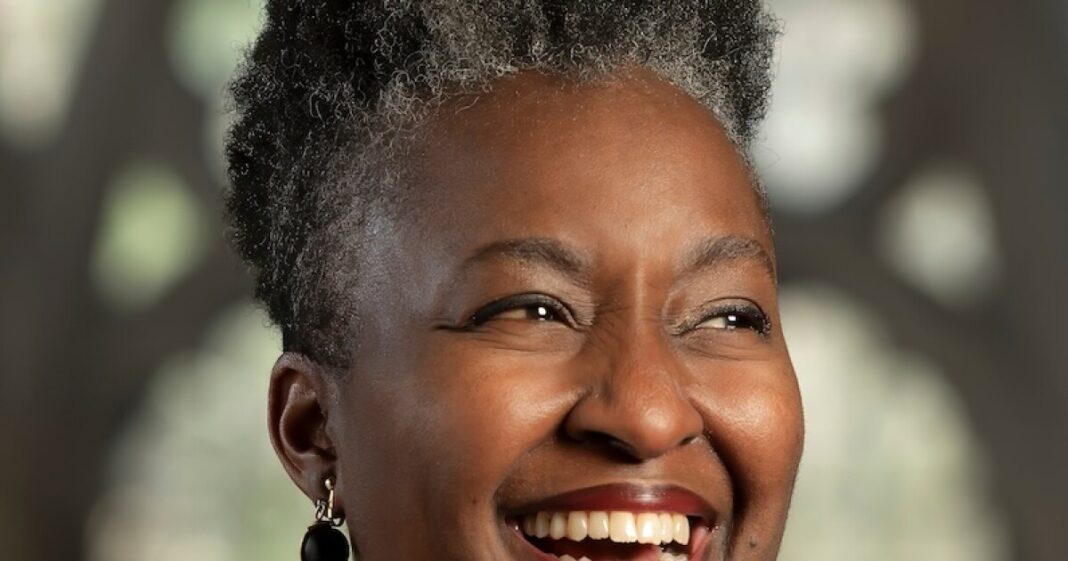On this edition of In Black America, producer/host John L. Hanson Jr. speaks with Wylin D. Wilson, associate professor of Theological Ethics at Duke Divinity School, and author of ‘Womanist Bioethics: Social Justice, Spirituality, and Black Women’s Health.’
African Americans, and especially African American women, suffer and die from diseases at much higher rates than their white counterparts. Many of these health disparities are not attributed to behavioral differences or biology, but to the pervasive devaluation of African American bodies.
Introduction to Health Disparities
Health disparities among different racial and ethnic groups have been a longstanding issue in the United States, drawing attention to systemic inequities that affect health outcomes. Particularly glaring are the disparities faced by African Americans, especially women. The dialogue around these inequalities is crucial, and in this regard, John L. Hanson Jr.’s conversation with Wylin D. Wilson sheds light on the intersection of ethics, health, and social justice.
The Role of Womanist Bioethics
In his interview with Hanson, Wilson discusses the concept of Womanist Bioethics, a framework that addresses the unique health challenges faced by Black women through a lens of social justice and spirituality. This approach recognizes that health is not merely a clinical issue but is deeply intertwined with cultural, social, and spiritual dimensions. By focusing on how these aspects influence health outcomes, Wilson aims to empower African American women to advocate for their own health needs.
Health Disparities in African American Communities
Statistics reveal alarming truths: African Americans experience higher rates of chronic diseases, including hypertension, diabetes, and certain cancers. The root of these health disparities is often attributed not to genetic predisposition but to systemic factors. Structural racism, economic inequality, and inadequate access to healthcare play significant roles in these disparities. Wilson articulates how this collective devaluation of African American lives manifests in health outcomes, leading to tragic consequences.
Spirituality and Health
An interesting aspect of the discussion is the role of spirituality in health. Wilson posits that spirituality can be a powerful tool for healing and resilience among African American women. In many communities, faith and spirituality influence not just individual coping mechanisms but also community practices around health. By integrating spiritual wellness with physical health, there’s potential for a more holistic approach to healthcare.
Advocacy and Action
Wilson emphasizes the importance of advocacy in addressing these health disparities. It’s not enough to merely identify the problems; active measures must be taken to dismantle the systemic barriers that contribute to these inequalities. Wilson’s work encourages individuals to engage with frameworks that seek to address these issues on both community and policy levels. Empowerment is crucial, and education plays a significant role in mobilizing communities to demand fairer healthcare access and treatment.
Societal Impacts
The broader societal implications of health disparities cannot be ignored. When a segment of the population consistently suffers from poor health, the impacts radiate across communities. Families face economic burdens, workplaces lose productivity, and social systems become strained. By addressing health inequities, we are not just enhancing individual lives but also strengthening societal structures.
The Conversation Continues
The dialogue initiated by John L. Hanson Jr. and Wylin D. Wilson is just the beginning. As more voices join the conversation around health disparities, the potential for change increases. Engaging various stakeholders—healthcare providers, policymakers, and community advocates—creates an environment where meaningful action can take place. This ongoing conversation is crucial for fostering awareness, understanding, and ultimately, change that honors the dignity and health of all individuals.
The discussion on African American health and wellness is multi-faceted, requiring a concerted effort across community, policy, and individual levels. It’s a call to action that resonates, encouraging deeper reflection and a commitment to justice and equity.



